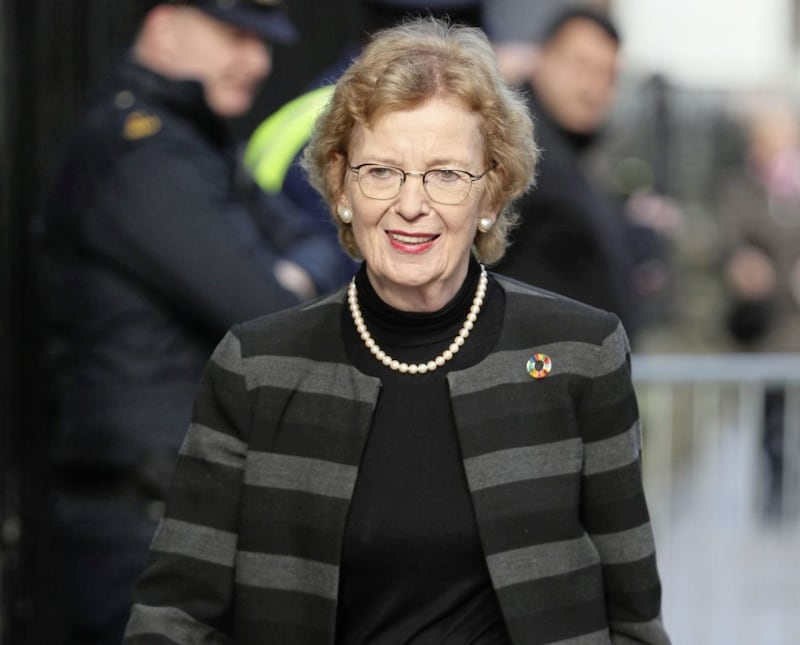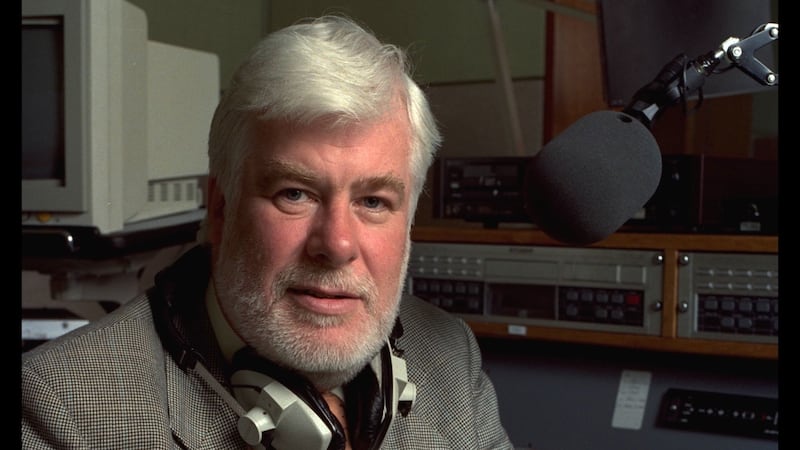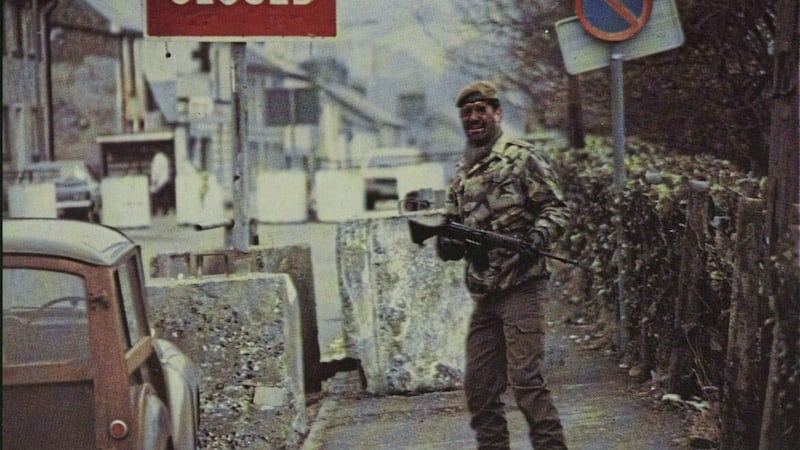RODNEY Rice was on just his second day working for RTÉ when the call went out for someone to report on Northern Ireland's fledgling civil rights movement.
The year was 1967 and the north barely featured on the news bulletins of the national broadcaster, never mind meriting a specialist correspondent.
Rodney was just a year out of university and a cub reporter on the new TV current affairs programme Seven Days.
But having grown up in Whiteabbey near Belfast, he knew the territory well and put his hand up for the job.
It would be the first of thousands of reports for RTÉ during a long and illustrious career that not only helped ensure authoritative and balanced coverage of the Troubles but made him one of the most respected political journalists on Irish radio and TV.
Belfast-born former RTÉ director-general Cathal Goan told his funeral: "Rodney was somebody who was at the centre of political coverage in this country for so many years: shining a light into the dark recesses of the political process and at the same time championing the central importance of open democracy for all of us, all citizens of this country."
Rodney Hugh Rice was born in 1944 into a Presbyterian family and his name carried the memory of those war years - Rodney after HMS Rodney, which helped sink the German battleship Bismarck, and Hugh for his mother's brother, Hugh Bamford, who was killed in action in France while she was pregnant with him.
His years at Royal Belfast Academical Institution would be hugely formative. He credited it with giving him a broad and rounded education and he returned regularly to the school for reunion events.
It was also at Inst, founded by United Irishman William Drennan, that he left behind his family's firm but moderate unionist politics and adopted the left-leaning nationalist views he would hold the rest of his life.
Rodney was a talented student and was offered a place at Oxford University but opted instead to study political science at Trinity College Dublin, wanting to learn more about the island he found strangely absent from his history textbooks.
He quickly integrated himself into life in Dublin and became interested in journalism, applying in his second year for a job at the Belfast Telegraph.
Advised to first gain experience in the college paper Trinity News, he did so before reapplying on graduation and spending a year learning the trade at the Telegraph's satellite titles.
When RTÉ television advertised for staff for a flagship new current affairs show, one of his lecturers, future Labour Party TD David Thornley, was on the production team and helped secure him a job.
Rodney would become a familiar face on Seven Days over the next seven years, reporting regularly from both sides of the border.

Among his most notable interviews was the last involving the Provisional and Official IRA leaders Seán Mac Stiofáin and Cathal Goulding before the imposition of the Section 31 broadcasting ban.
Rodney then moved to radio, hosting the mid-morning current affairs programme Here and Now for a decade.
And in 1984 he began a 25-year run as anchor of RTÉ Radio 1's influential political programme Saturday View.
Over the years he dissected Dail developments with government ministers and backbench TDs of every political hue.
In 1990 the programme also played what would be a pivotal role in that year's presidential election.
When Fianna Fáil's Pádraig Flynn made an ill-advised personal attack on Labour candidate Mary Robinson, referring to a "new-found interest in her family", Rodney's skilful chairing of the discussion gave the minister just enough rope to irreparably damage the candidacy of party colleague Brian Lenihan snr and help usher in the first female head of state.

However, it was in his work on another radio programme during the same period that her perhaps took most professional pride.
Worlds Apart was commissioned with the Department for Foreign Affairs to bring stories of the developing world into Irish homes and over the years Rodney would report from dozens of countries across Africa, Asia and South America, spending six weeks away from home each summer.
A damning verdict on the apartheid regime in South Africa in 1981 saw him become the first Irish journalist banned from the country.
He continued to report from neighbouring states and would derive great satisfaction in hosting television coverage of Nelson Mandela's release from prison and a concert to mark his first visit to Ireland.
A commanding figure, standing 6' 3" tall with broad shoulders and a shock of white hair, Rodney loved meeting people and was not afraid to express his views, his northern directness not always appreciated on first meetings.
This was not the case with his Mayo-born wife Margo Collins, who had taught in Newry in the 1960s and been involved in the civil rights movement before they met in Dublin.
They shared a similar political outlook, although Rodney was always careful to maintain journalistic neutrality.
His family said he was motivated throughout his career by a sense of justice and a faith in politics to achieve public good, as well as journalism's role as a watchdog in that process.
Always strongly opposed to violence, he would be delighted to see the Troubles eventually give way to peace although he remained frustrated to the end at the persistent problem of a divided society.

After retiring from RTÉ in 2009, Rodney continued to work in the developing world with Trócaire and ActionAid Ireland.
Speaking at his humanist funeral service at Mount Jerome in Dublin, Brendan Rogers of the Department of Foreign Affairs said he "helped shape our national consciousness on development issues".
"Rodney's moral compass was absolutely clear and consistent in all of the years that I've known him: he never wavered from calling out injustice and inequality."
Among other tributes following his death, President Michael D Higgins said the news "will have been heard with sadness by all those with an interest in politics and global justice but in particular by all those to whom he introduced a world of freedom struggles, inequality, famine and forced migrations".
Taoiseach Micheál Martin also tweeted that he was a "brilliant political reporter, presenter and producer" who leaves a lasting legacy in international aid.
Rodney Rice died aged 76 on August 29 and is survived by his wife Margo, children Cian, Caitríona and Eoghan and eight grandchildren.








